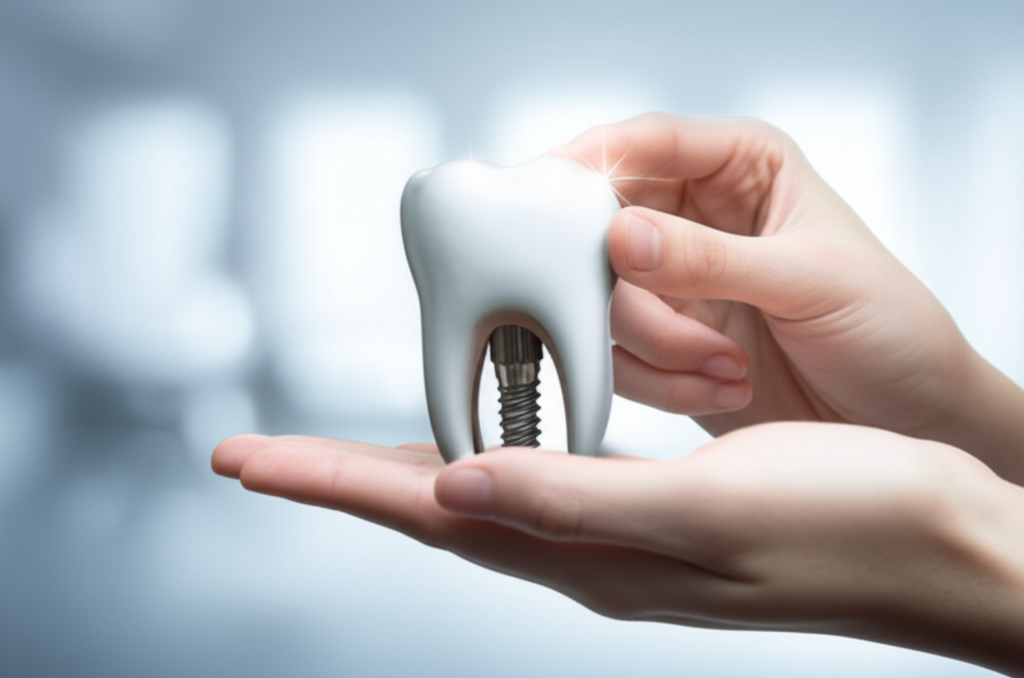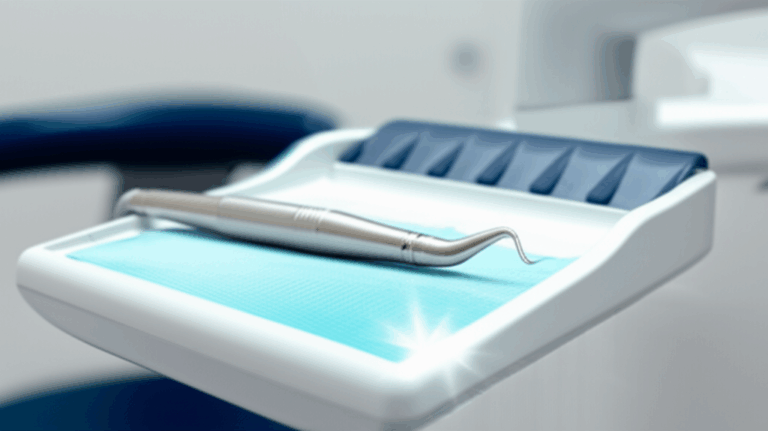
What Is a Dental Implant Grant? My Firsthand Guide to Financial Aid for Implants
Table of Contents
- Non-Profit Organizations & Charities
- Dental School & University Clinics
- Government & State Programs
- Clinical Trials
- Private Dental Offices & Payment Flexibility
- Dental Insurance Limitations
- Dental Tourism and Its Risks
- Payment Plans & Third-Party Financing
- Discount Dental Plans & Crowdfunding
- Other Prosthetic Options
Introduction: When I First Heard of Dental Implant Grants
Let me take you back to when I first found out I needed dental implants. I was really worried and shocked by how much my dentist said it would cost. The price made my jaw drop. That’s when I started looking for ways to make it cheaper and found out about “dental implant grants.” Maybe you’re just like I was—not sure if these grants are real, who can get them, or even where to start.
I started looking into it, trying to find out the truth about these programs, and to tell you the truth, it was a lot more confusing than I thought it would be. That’s why I want to tell you what I learned the hard way, clear up what’s real and what’s not, and tell you what dental implant grants really are—and what they aren’t. So let’s get to it.
Understanding Dental Implant Grants: Myths vs Reality
What a Dental Implant Grant Really Is
When you hear the word “grant,” you might think of free money handed right to you for dental work. From what I saw, that almost never happens, especially with dental implants.
A dental implant grant usually means help with paying for treatment, often from a charity, non-profit group, sometimes a dental school, or every now and then a government program for certain people. These grants might help you pay for part of your implant procedure—not the whole thing.
For example, some foundations or groups team up with local dentists to give out free or cheaper services to people who really can’t afford it. The money (or free service) almost always goes straight to the dentist, not to you. Most of these programs are for people who honestly can’t pay for care—like low-income people, older people, veterans, or folks with certain health problems.
What a Grant Is NOT
Let’s be clear—dental implant grants are not:
- Free government money for everyone
- A sure thing for anyone who asks, no matter your income or health
- Cash you can use any way you want
- A way to cover 100% of your dental bill (that almost never happens)
- “No-questions-asked” deals; you always have to fill out forms and prove you really need the help
There are a lot of mixed-up ideas out there, especially online. Not every website talking about “grants” is real. Some are really just places that connect you with dentists who offer discounts or loans, which can be good too, but it’s not an actual grant.
Who Gets Dental Implant Grants? What I Learned About Eligibility
General Requirements
The most important thing: dental implant grants almost always go to people who need help, not just those who want nicer teeth. Here’s what I learned:
- Proof you’re broke or struggling: Most programs want tax forms, paychecks, or something to show you truly can’t pay for treatment.
- Living in the country or legal resident: Usually, you need to show you live here legally. Most grants don’t go out of the country unless it’s part of a special group program.
- Your dental problems are serious: Grants often go to people whose missing teeth affect their eating, health, or cause pain—not just looks.
- You agree to follow rules: You might have to finish your treatment in a certain time and listen to instructions about care after the work is done.
Special Groups Often Eligible
Some programs or grants are for certain types of people. Here’s a few I found:
- Veterans: If you have VA dental benefits and fit their rules, you might get implants, especially if your tooth loss connects to your service.
- Victims of Domestic Violence or Injuries: Programs like Give Back A Smile are for people hurt by violence.
- People With Serious Illness: Some groups for diseases (like cancer) might help if your dental problems came from treatments like radiation.
- Older Adults on a Small Income: If you’re a senior and don’t have much money, some programs, like Donated Dental Services, might put you at the top of the list.
- Kids With Birth Problems: Rare, but sometimes programs help kids who need dental work for health reasons, like cleft palate.
Some programs have really specific rules. The tougher or more special your situation, the better chance you have to find a group that will help.
Where I Found Legitimate Dental Implant Grant Programs
Hunting for real help is not easy. A lot of times I almost quit, because most things I found were really just loans or sneaky marketing called a “grant.” But after lots of searching, I found a few places that were real options. Here’s where I looked—and what happened.
Non-Profit Organizations & Charities
- Donated Dental Services (DDS) / Dental Lifeline Network: This group has dentists across the U.S. who give free dental care to people with very high needs—mostly older adults, folks with disabilities, or people who are really sick. Sometimes implants are included, but not always—it depends on the dentist and what you need.
- Give Back A Smile (GBAS): Run by the American Academy of Cosmetic Dentistry, this is for survivors of violence who had their teeth hurt in the process.
- Smiles for Everyone Foundation: Runs mobile clinics and charity events, sometimes offering advanced care, including implants, if you qualify.
- Disease-Specific Groups: Sometimes cancer or medical charities step in if losing your teeth was because of your illness or treatments.
- Community Charities (like United Way): Sometimes these local groups can send you to other help or give small grants for emergencies.
It takes time and patience for these groups. There can be long waits, and getting in isn’t super fast. But don’t give up!
Dental School & University Clinics
A friend told me dental schools are good for lower-priced care. Dental students (always watched by experienced teachers) do the work, so it’s cheaper—sometimes half the normal price. You may not get a “grant,” but the discount is almost the same as free help sometimes.
Big universities like NYU or UCLA, or a school close to you, may have these clinics. You might have longer visits, but you get good care for a lower price.
Government & State Programs
- Medicaid & CHIP: Medicaid rarely pays for implants, but in a few states, they do, especially for kids or some adults. CHIP may help children.
- Veterans Affairs (VA) Dental: These are for some vets who meet certain rules—often for dental injuries from their service.
- State or Local Help: Some places give one-time dental help. It’s not often they pay for implants, but new programs come up sometimes, so call your local health office.
Clinical Trials
This surprised me. Sometimes dental schools or companies need people to test new implants or procedures. You might get free or very cheap implants if you join a study, but there are strict health rules. If you’re up for it, ask your local dental school if they have trials coming soon.
Private Dental Offices & Payment Flexibility
Many dentists have payment plans or work with companies (like CareCredit, LendingPoint, LendingClub) to let you pay in pieces. These are not “grants,” but they help spread out payments. I found some dentists willing to knock the price down if you explain your situation and ask kindly. Being honest and sticking with it helps.
How I Navigated the Application Process
Once I found real grants and programs, filling out the forms was hard on its own. Here’s what I did that made it go smoother:
Treat it like a job application—be clear, honest, and pay attention to details—because lots of people are asking for help, and those who stick with it have the best chance.
Exploring Alternatives When Grants Fell Short
Even though I tried every grant I could find, sometimes it still wasn’t enough. Not all grants are available, and when they are, they might not cover everything. Here are some things I tried or thought about as backup:
Dental Insurance Limitations
Dental insurance almost never pays for everything. Some policies will pay a small part (maybe 10%–50% for the part that’s above the gum, even less for the post). Most have a yearly limit—like $1,000–$2,000—which still leaves you with a big bill. But any help is good, so I read my rules and called the insurance company for answers.
Dental Tourism and Its Risks
Some people travel to countries like Mexico or Eastern Europe for cheaper implants. You can save a lot, but there are real risks—travel cost, problems with follow-up care, language issues, and if there’s a mistake, it’s harder to fix. If you go for this, check implant dental laboratory standards in those places to make sure you’re safe.
Payment Plans & Third-Party Financing
Things like CareCredit or LendingPoint let you pay for your dental care over time—sometimes with no interest if you pay it within a certain number of months. Many dental offices work directly with crown and bridge dental laboratories and take these kinds of payments, so you don’t have to pay all at once.
Discount Dental Plans & Crowdfunding
Discount plans are memberships that give you a set percent off lots of dental work. They cost a little every month, but save you money each year—just make sure your dentist takes the plan.
Crowdfunding—asking for help online on websites like GoFundMe—can work for some people. Telling your story honestly can sometimes lead to surprise help from friends, family, or strangers.
Other Prosthetic Options
If nothing else works, try partial dentures or bridges. These cost less than implants, though they don’t work or look quite as natural. Removable denture labs can often make these more reachable and cheap. When you’re hurting to eat or smile, something is better than nothing.
Key Things I Wish I Knew Before Pursuing Dental Grants
If I could give myself advice from the start, I’d remember these things:
- Not Every “Grant” Means Free Money: Some are discounts, others are donated services, and just a few are true grants sent straight to your dentist. Always look at the details.
- Some Offers Are Scams: If a program wants you to pay a fee just to apply, promises the world, or won’t give real info, it’s not real. Honest charities don’t charge just to apply.
- You’ll Probably Pay Something: Even when I got help, I had to pay for some parts—like checkups, tooth pulling, travel, or certain lab costs.
- Get Your Dentist’s Advice: Before you even start, talk to your dentist about what’s realistic. A good dentist knows lots, can give you papers to apply, and help you decide if you even need implants. I also learned questions about labs, like the difference between a digital dental lab and regular ones, matter a lot.
Conclusion: Charting Your Path to Affordable Dental Implants
The hunt for help paying for dental implants took me on a wild ride. What I wish someone told me: grants are out there, but they’re rare, tricky to get, and almost never cover it all. You need lots of patience, grit, and might have to use a mix of grant, insurance, and payment plan just to get there.
Don’t give up just because your first try doesn’t work. Share your story, get your stuff organized, and keep trying. Most of all, talk to people—dentists, charity workers, friends who have done this. You’ll get through the paperwork and stress one bit at a time. And when you can finally smile, eat, and not worry so much, it’ll all be worth it.
Useful Data and Real World Insights
Here’s some numbers and facts that show why this matters so much, and why folks like us look for help:
| Category | Statistic | Real-Life Meaning |
|---|---|---|
| Average single dental implant cost | $3,000 – $6,000 | Most insurance pays little or nothing—no wonder folks want grants |
| Full mouth implants (“All-on-4”) | $20,000 – $50,000 (or more) | Most people can’t pay this without some help |
| Dental insurance average annual max | $1,000 – $2,000 | Not enough for even one implant in many cases |
| Adults skipping dental care due to cost | 1 in 4 | You’re not alone—this is normal for many people |
| People helped by Dental Lifeline Network | 168,000+ patients | Real folks get help when they qualify |
| Give Back A Smile donated care | $18+ million | Every bit of help makes a real change |
If you want to really understand what dental implants involve, how they’re made, or the need for a good dental lab, check out this simple guide to dental implant science and process.
Whatever path you pick, don’t lose hope. There’s almost always a way, even if it takes a few turns. Stand up for yourself, ask questions, and remember—your smile and comfort are worth fighting for!







